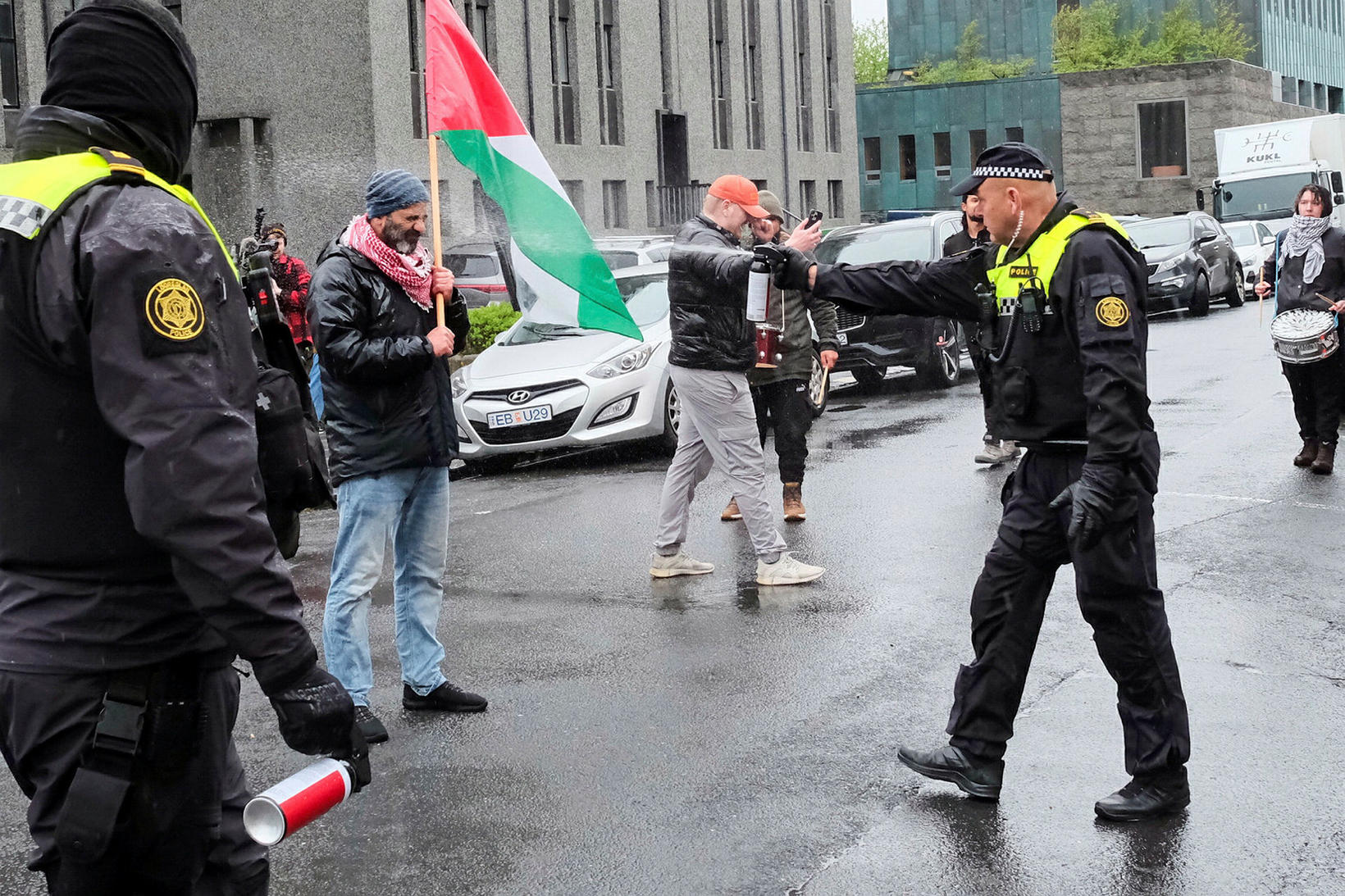Investigation concludes that police did not go too far at the protest
The Committee on the Surveillance of the Police concludes that officers at the protest scene at Skuggasund on May 31 were careful at the scene and made sure that protesters would not be harmed, unfairly treated, or harmed beyond what was inevitable in the circumstances.
Police used pepper spray on protesters, which prevented the ministers’ movement. Several people sought emergency medical attention.
The Committee concludes that the police did not go beyond the necessary in their work during the protest and that their actions were proportionate.
It is noted that to their knowledge no protesters were injured.
The committee also concluded that the committee does not believe there are any indications of possible criminal or reprehensible conduct by police officers. It is therefore not seen as necessary to take further action on the matter.
Protest at the Government’s meeting
A group of people gathered at Skuggasund on the morning of May 31, outside the government’s meeting, to protest the Icelandic government’s inaction on the matter of Israel and Palestine.
The police were prepared at the scene.
After the meeting, the protesters blocked the ministers' movement to drive from the meeting. The protesters lay down on Lindargata in front of the gate where the cars tried to turn onto Skuggasund.
The police then used pepper spray against protesters to disperse the group from the street, as the committee decided, to get a minister’s vehicle through the gate down Skuggasund.
Asked for video footage the same day
Video footage showing police using pepper spray was published in the media shortly afterward.
The committee requested the same day to collect images from the police’s bodycams and CCTV surveillance cameras.
The committee's decision states that the committee has access to source material from police cameras at the scene and a large number of photos and videos that have appeared in the media.
“This material gives a very good view of the scene and how people’s behavior was perceived by the police and what the situation was like on the spot,” the committee concludes.
Not free to do whatever they want
The committee concludes that the right to protest is extensive, but that protesters are not free to do whatever they want.
“Article 19 of the Law on Police establishes the obligation to obey the police. It states that the public is obliged to obey orders from the police, such as traffic control, or to maintain law and order in public.”
It is also stated that the police may use force in carrying out their duties, but it cannot exceed what is deemed fitting for the occasion.
Police warnings not taken seriously
In the decision, the committee recites the event as it appears in a video from the scene.
The committee says that police gave protesters repeated orders to leave the street but that some protesters did not obey the orders. Police then tried to physically move the protesters but they went back to the street.
“Then, a police manager at the site ordered the use of pepper spray, indicating that they would be used if orders from the police were not followed. Protesters were also given a verbal warning that pepper spray would be used if they did not move off the street. The police warnings about spraying weapons were not taken seriously and orders from the police were ignored.”
The committee believes that all parties should have been clear about what the police were doing if they did not follow clear instructions.
The operation was in accordance with police procedures
The committee concluded that based on the video footage and the photos the police are following their duties, including when the use of pepper spray was decided.
“No protestor was injured in this operation. From the viewpoint of the imagery in the case, which is extensive, it shows the police officers kept the scene in order and ensured that the protestors were not harmed, unfairly treated, or misdirected beyond what was inevitable in the circumstances, in accordance with Articles 2 to 13 of the Police Act. The Committee on the Supervision of Police considers that the police did not go beyond the necessity in their work at the scene and therefore their actions were proportionate.”





/frimg/1/57/87/1578747.jpg)

/frimg/1/57/94/1579405.jpg)

